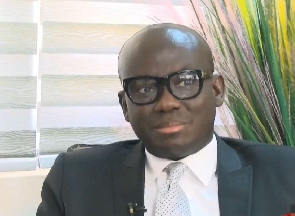• The Attorney General believes that the High Court ruling of the case involving the two Rasta students needs to be appealed
• He said it has far-reaching implications
• He stressed, the decision will also open the floodgate to all kinds of lifestyle in the secondary schools
Godfred Yeboah Dame, the Attorney General and Minister for Justice has said emphatically that the High Court which ordered Achimota School to enroll the two Rastafarian students “has far-reaching implications”.
According to him, many individuals have expressed their utmost displeasure over the court decision and to him, if the decision has to be applied then it must be subjected to the test of a higher court within the judiciary architecture.
The Attorney General explained that the High Court constitutes the first step in the judiciary architecture, above it is the Court of Appeal and the Supreme Court, so, I think that this is not the end of the matter, the soundness of the decision has to be tested.
He said this will give the High Court decision a definite pronouncement on the merits of the matter “by a higher court in the Superior Court of adjudicator”.
In explaining his claim that the decision has far-reaching implications to JoyNews on Wednesday evening, Yeboah Dame said, “the long-standing rules and regulations enforced by [the] schools in the country may have to be reformed; it may open the floodgate to the acceptance of various lifestyles by schools to the extent that the decision is a pinch on human rights; it implies that the adherence to a certain lifestyle or custom or culture of a certain person perhaps will have to prevail over the relevant rules and regulations applicable in schools throughout the country.”
He argued: “And for such a decision, you do not just leave it at the High Court, after all, this decision is not binding on the High Court itself, it is not binding on a High Court differently constituted.
“You can have another High Court constituted by a different justice taking a different view of the matter and you wouldn’t know which way to go; so, it can lead to uncertainty and I think that there is a need clearly to have a clear definite pronouncement on the matter to the extent to which certain practices claim to [be] religious or claim to be even cultural ought to be recognized or accepted in schools.
“So, it is not just a matter of Rastafarians permitted to wear locks or not about traditionalists who would also want to insist that his culture enjoins him to walk barefooted, what about traditionalist who also insists that he must be accorded with a tenet of his custom which is just to wrap a cloth around his waist even though the person is a male, then for that matter the school cannot restrict the manner in which he dresses.
“It could even have implications on whether school uniforms ought to be enforced because if I also want [to] insist that I do not have to wear school uniforms on account of a certain factor, are you saying that that ought not to be permitted? That definitely will be discriminatory so, we ought to really see the soundness of it.”
Godfred Yeboah Dame noted that the merit of the ruling, notwithstanding, needs to be tested.
He indicated that, despite the case having based on religious rights, there is also a cultural right that ought to be exercised because that cannot be taken away from any individual.
“That is why, most of the time, the yardstick is whether or not the person has attained adulthood.”
“…inherit to Article 14(1)(e) is recognition that a person's personal liberty can be curtailed if under 18-years for [the] education and welfare of that person. That’s why they can insist on a boarding student not leaving the premises of the school except with the proper permission given by the school authorities.
"So, the permission to regulate the lifestyle of a person under the age of 18 for the purposes of education or welfare is granted by the Constitution; is accepted and the extent to which the restriction can be enforced when it comes to religion, culture even health or what have you are things I think that will always become a matter of disputation and contention in court..."
Article 14 (1)(e) reads: “Every person shall be entitled to his personal liberty and no person shall be deprived of his personal liberty except in the following cases and in accordance with procedures permitted by law - for the purpose of the education or welfare of a person who has not attained the age of eighteen years.”
General News of Thursday, 3 June 2021
Source: www.ghanaweb.com

















